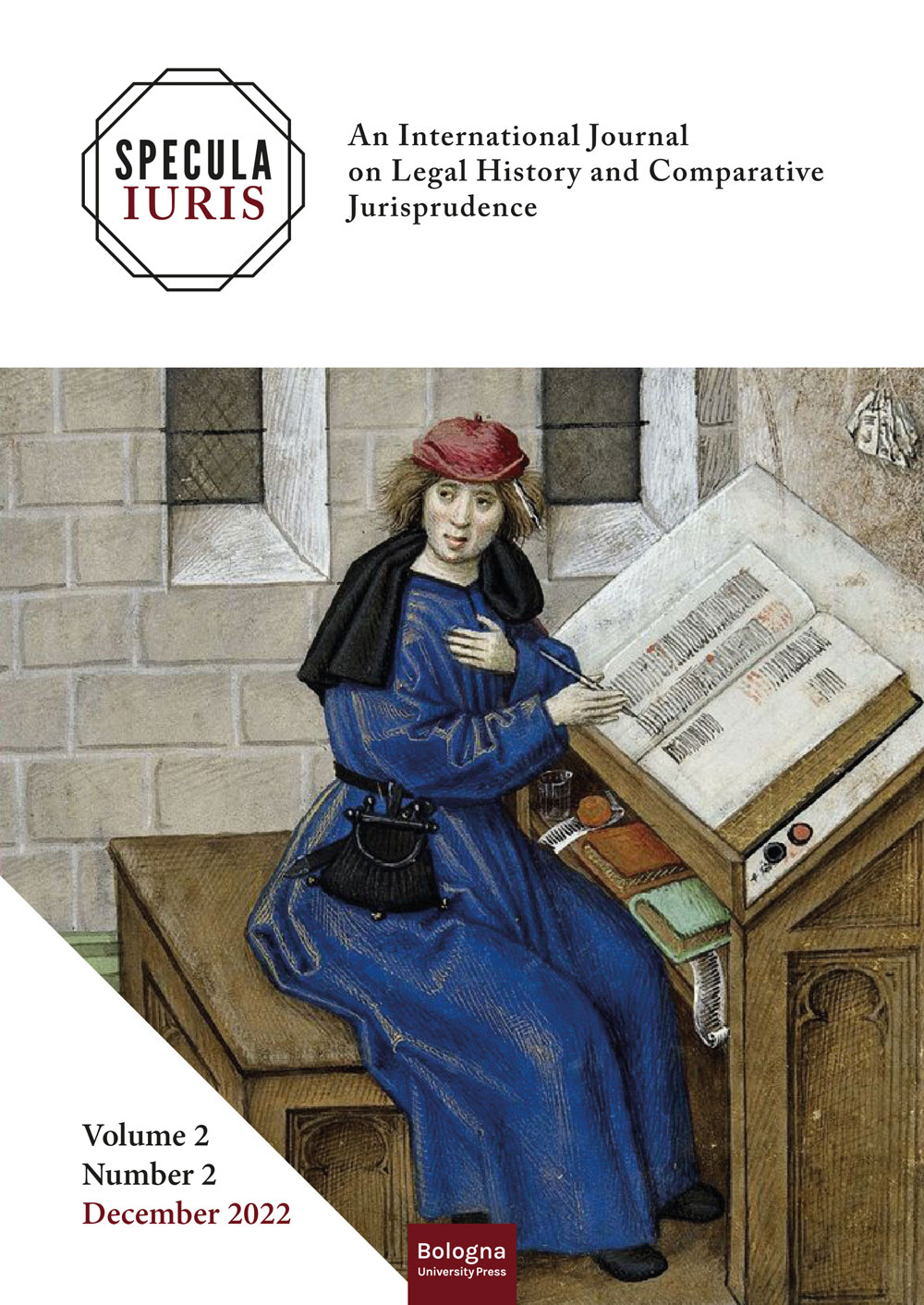Published 2023-07-13
Keywords
- Totalitarianism, constitution, codification, legality
How to Cite

This work is licensed under a Creative Commons Attribution 4.0 International License.
Abstract
With the seizure of power, fascism undertakes a radical overhaul of the normative structure of the Italian state. No sphere is spared: in the field of constitutional law, it intervenes by introducing laws that empty the structure of powers designed by the Statuto albertino and the subsequent practice of relations between crown and parliament; in the field of criminal law, both substantive and procedural, it proceeds to draft new Codes inspired by the principle salus publica suprema lex; finally, in the field of civil law as well, with a more relaxed timetable because the need to regulate relations between private individuals was less pressing than it was to shore up public order, new Codes were issued, which would be published, on the threshold of war or after the war had begun, shortly before the collapse of the fascist regime. Despite this massive regulatory rewriting, the horizon for action remains open for further intervention. For, as is pointed out by authoritative doctrine of the time, the totalitarian state cannot be harnessed even by the rules it has enacted, and they will have to be considered susceptible to modification if and when factual circumstances advise it. From this perspective follows a drastic downsizing of the importance of the Enlightenment principle of legality and the idea of legal certainty.

